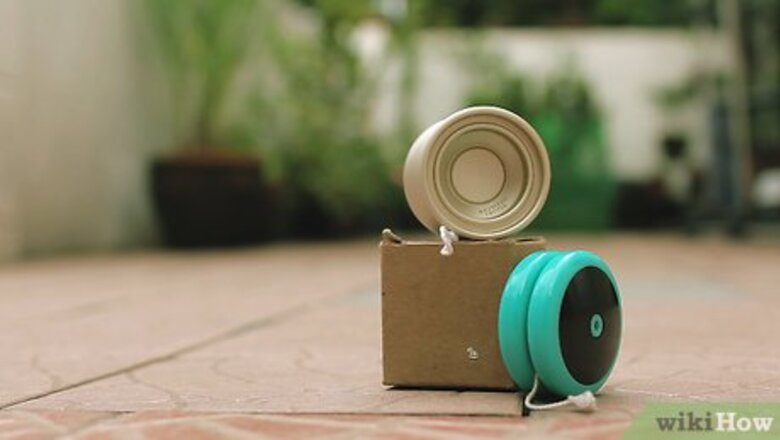
views
Performing a Basic Sleeper

Grab a decent-quality yo yo. Compared to other yo yo tricks, the sleeper is fairly simple. Most basic yo yos of a reasonable level of quality should be able to perform a sleeper without any problems. However, some cheap "toy" yo yos which are poorly constructed may be almost impossible to perform a sleeper with. If you have one of these types of yo yos, consider upgrading to a higher-quality model to make it much easier to do sleepers and any other tricks that you may want to try. While certain high-end yo yo models can be expensive, most serviceable ordinary yo yos won't cost you more than $10-$20. For a stronger spin, consider buying a model with metal construction or added bearings — the extra weight gives the yo yo more momentum as it spins, making longer sleepers possible.
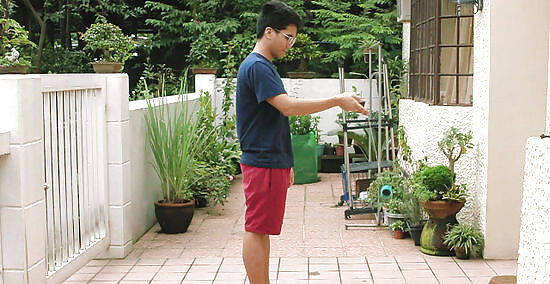
Master the gravity throw before trying a sleeper. The sleeper begins in almost exactly the same way as the basic yo yo move called the gravity throw, so it’s useful to become confident with this simple technique before trying the sleeper. Though it may sound intimidating, the gravity throw is anything but — it’s just the basic “up and down” motion that almost anyone can do with a yo yo. Though this move isn’t terribly tricky, learning the proper technique for a gravity throw will make doing a sleeper much easier. To do a gravity throw, hold the yo yo upright in your dominant hand, palm-up. Make a motion like you’re flexing your bicep, then bring your forearm back down and let the yo yo roll out of your hand. Turn your hand over to catch the yo yo as it hits the bottom of its string and bounces back up.
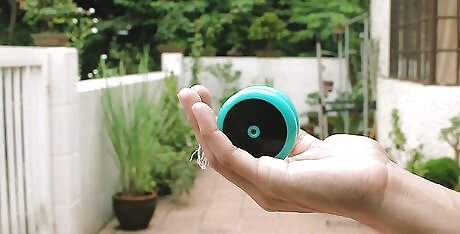
Hold the yo yo in your hand palm-up. To do a sleeper, you'll begin exactly as you would for a gravity throw. Loop the yo yo's string loosely around the middle finger of your dominant hand. Hold it upright in your palm so that the skinny end is sitting against the flesh of your hand. Curl your fingers around it slightly to support it. Hold the yo yo out in front of you with your elbow bent and at your side.
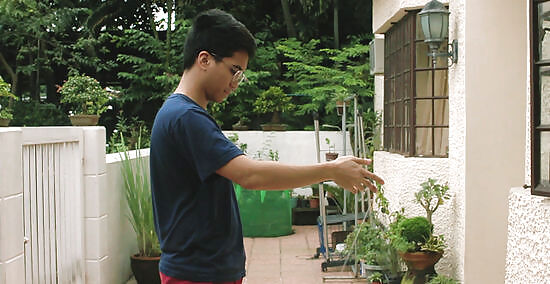
Throw the yo yo down. Make a motion like you're flexing your bicep by curling your hand and forearm up towards your shoulder. For extra power, you can even lift your elbow so that it's roughly level with the floor (or even past this point). In one smooth motion, roll your forearm and hand downward and let the yo yo roll off of your fingers as you throw it at the ground. This motion should be quick and powerful, but fluid. The harder you throw the yo yo, the longer it will "sleep." Turn your hand over so that your palm is facing the floor after you throw your yo yo so that you have greater control over the string and can eventually catch the yo yo when it comes back up (this motion should come fairly naturally). Don't hold on to the yo yo too tightly — keep your grip loose throughout your throwing motion. You're trying to get the yo yo to roll off of your hand and fly directly at the ground. If you grip the yo yo tightly and release it only as you throw it down, it may fly diagonally, rather than straight down, giving your sleeper a wobbly pendulum-like motion.
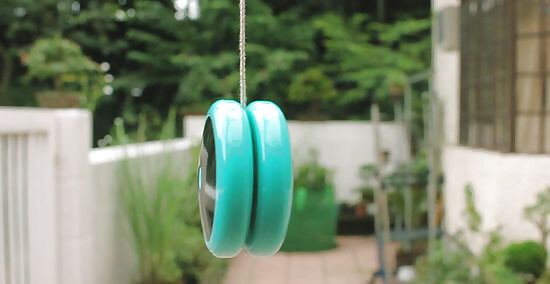
Try to keep the yo yo upright as it spins. Unlike with a gravity throw, you won't want to yank the yo yo back up after you throw it — simply let it hit the bottom of its string. The yo yo should begin spinning smoothly and quietly at the end of the string. It should usually remain upright as it spins without much effort on your part, but if your initial throw was subpar or your string is wound too tightly, it may begin to wobble. In these cases, you may need to subtly pull the yo yo in the opposite direction to prevent it from losing its balance.
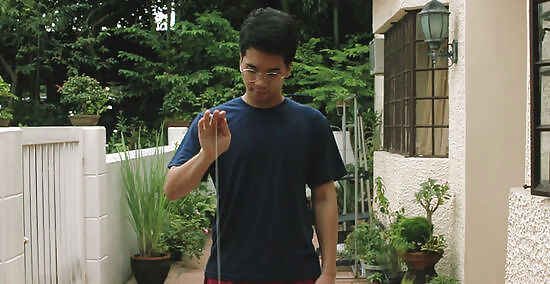
Give the yo yo a slight tug to have it climb back up. Congratulations — you've just done 90% of a sleeper. Now all you need to do is "wake the yo yo up" (in other words, get it to return to your hand). For most basic models, all you'll need to do is give the yo yo a small, sharp upward tug. The yo yo should "catch" the string and work its way back up toward your hand. If your yo yo doesn't seem to have enough "strength" to climb the string all the way, try throwing it harder to give it more spin. Grab it as it reaches the top of the string and you're done! Some modern yo yos (especially high-end models) sacrifice the ability to climb back into your hand for longer, smoother spinning. If you have this sort of yo yo, it may be difficult or impossible to get it back from a sleeper simply by jerking it up. Instead, you may need to use a special technique called a “bind” to generate enough friction for the yo yo to climb the string. See below for more information.
Perfecting the Sleeper
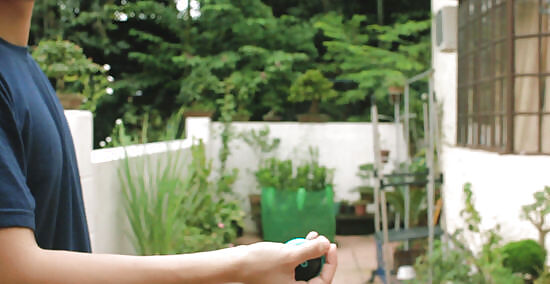
Hold the yo yo with proper posture. Making just a few minor changes to the way you hold your yo yo can make the difference between "so-so" sleepers that fizzle out after ten seconds and sleepers that spin for a minute or longer. For the best results, try to maintain a loose grasp on the yo yo with your middle finger, index finger, ring finger, and thumb before your throw. Curl your fingers up under the yo yo and bring your thumb around the backside to stabilize it. Keep your wrist loose before and during your throw — it should move freely, independent of your forearm. For the best sleepers, you'll also want to be sure that the string is on the outside edge of the yo yo, rather than the inside. In other words, you want the yo yo's string to wind around the top of the yo yo, rather than around the bottom. This allows the yo yo to roll smoothly out of your hand when you throw it. On the other hand, if the string winds around the yo yo backwards, the added strain can make your sleeper be somewhat "wobbly" or tilted.
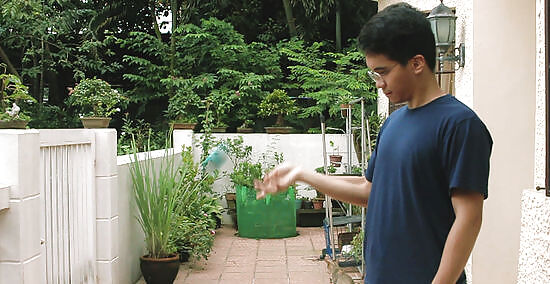
Use strong throws. As noted above, in general, the harder you throw your yo yo at the floor, the faster and longer it will spin. For basic sleepers, you probably won't need your yo yo to spin for all that long, but when you advance to complicated tricks, you may need to be able to count on having a minute or more of solid spin time. Because of this, it's wise to get in the habit of throwing your yo yo with a good amount of force early. However, no matter how hard you throw your yo yo, you'll want to use proper technique to keep it under control — in other words, use the loose bicep-flexing throwing motion described above. As an example of what's possible with good throwing technique, expert yo yo-ers with good yo yos can achieve sleepers that spin for over 10 minutes. Some professional-grade yo yos are even advertised as being able to achieve a spin time over 30 minutes!
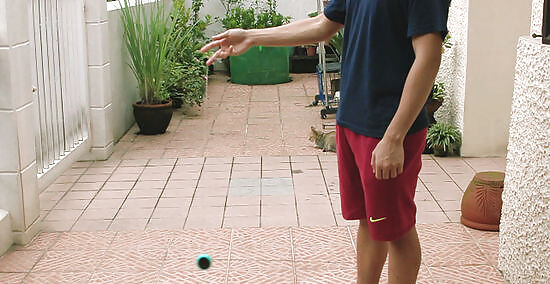
“Cushion” the yo yo’s landing. You may have noticed that, occasionally, the yo yo will climb back up the string when you try to do a sleeper even if you don't jerk it up. This happens when the yo yo hits the end of its string, runs out of slack, and bounces back upwards, catching the string again. To avoid this problem, try giving the yo yo a subtle jerk before it hits the end of its string. This puts a little slack in the string, making the yo yo hit the bottom of its path with less force and reducing the chance it will bounce back up. It can be tricky to get the timing on this move perfect, so practice plenty. For the best results, you want to jerk somewhat gently just before the yo yo hits the bottom of the string, when it's about three-quarters of the way down.
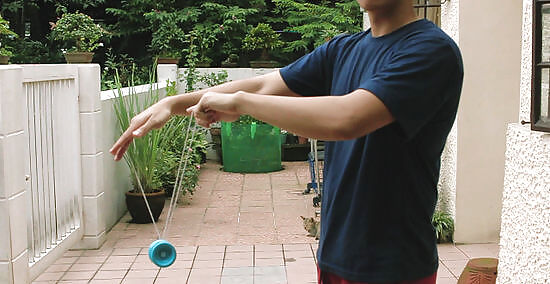
Learn the “bind” technique for getting your yo yo back up. As mentioned above, some professional-grade yo yos are constructed in a way that deliberately sacrifices the ability for the yo yo to climb back up the string in order to make it easier to perform advanced tricks. If you have this sort of yo yo, you'll need to perform a special move called a bind to be able to get the yo yo back into your hand after a sleeper. The basic goal of this technique is to put a small loop into the string as it winds up, which creates enough friction for the yo yo to "catch" the string and start climbing up the string. To perform a bind: Start by throwing an ordinary sleeper. Use your free hand to grab the string a few inches above the spinning yo yo. Keep holding onto the string while you swing the yo yo under the fingers of your free hand and catch it on the string. This should leave you with the yo yo still spinning at the lowest point of a checkmark shape formed by the two string sections. Gently pull on the string connected to your throwing hand to pull the yo yo closer to the fingers on your free hand grabbing the doubled-up string section. When the yo yo gets too close to keep holding on, let go with your free hand. The string should catch on itself and the yo yo should climb the string back into your hand.
Transitioning to Advanced Tricks
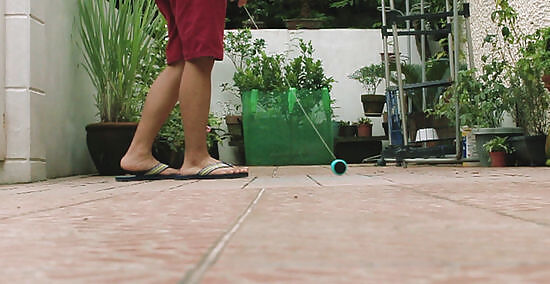
Try walking the dog. As noted above, for experienced yo yo-ers, the sleeper is usually performed merely as a small part of a more complicated trick, rather than as a trick on its own. Once you've mastered the basic sleeper, you may want to try learning some of these more advanced tricks to expand your repertoire. For instance, "walking the dog" is an intermediate-level trick that involves throwing a basic sleeper and gently lowering the spinning yo yo until it just touches the floor. When it catches on the ground, the yo yo should skip or roll forward like a dog on a leash! Jerk the yo yo back into your hand to end the trick.
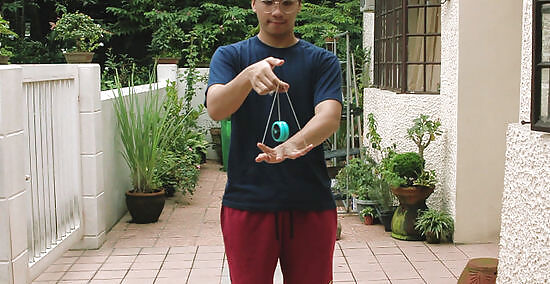
Try rocking the baby. This trick involves making a "cradle" with the string and swinging the yo yo through it like a miniature pendulum. To rock the baby: Start by throwing a basic sleeper. Use your free hand to pull the string between the index finger and thumb of your throwing hand as if you're drawing a bow. This should create a large loop. Use the fingers on your free hand to spread this loop, then move your free hand downward to turn the shape vertical. The still-spinning yo yo should swing back and forth through the gap in the loop. Drop the string and jerk the yo yo back into your hand to end the trip.
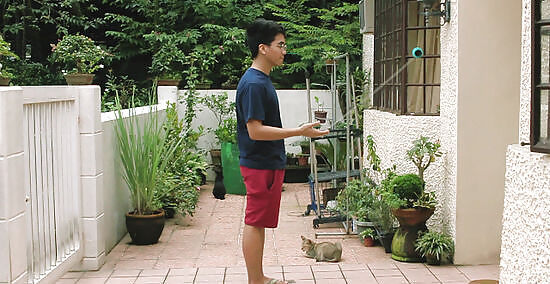
Try an around the world. Perhaps one of the oldest, most well-known yo yo tricks in the book, the around the world involves swinging the yo yo in a large vertical circle like a Ferris wheel. To perform an around the world: Start by throwing a modified sleeper out in front of you (rather than down towards the floor) in a move called a "forward pass". With your yo yo in your hand at your side, bring your arm forward as you uncurl your wrist and allow the yo yo to roll off of your fingers. When the yo yo hits the end of its string, pull it up over your head and behind you in one fluid motion. Let the yo yo complete a single complete circle, or, if you're feeling confident, feel free to give it another "trip" around the world. When you're ready to stop, wait until the yo yo is out in front of you, then jerk it back towards your body and catch it.
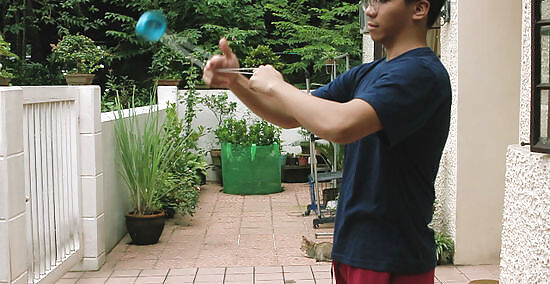
Try a brain twister. This intimidatingly-named trick can require some serious practice, but it looks amazing when it's perfected. To perform a brain twister: Begin by getting your yo yo into the same checkmark-shaped string arrangement as you would use when performing a bind. Move your free hand up and around to the other side of the throwing hand string. Pull back on the strings with your throwing hand index finger, then move your throwing hand up and fling your yo yo over the top of both hands. Let the yo yo swing out and away from you and back down underneath your hands. You can stop here or keep swinging the yo yo for additional revolutions. When you're done, drop the yo yo back into its starting position and let it climb back into your hand. With each revolution, the string will wind around your throwing hand finger. Point your finger toward the yo yo as it climbs the string to allow the string to unspool and the yo yo to climb back into your hand.




















Comments
0 comment